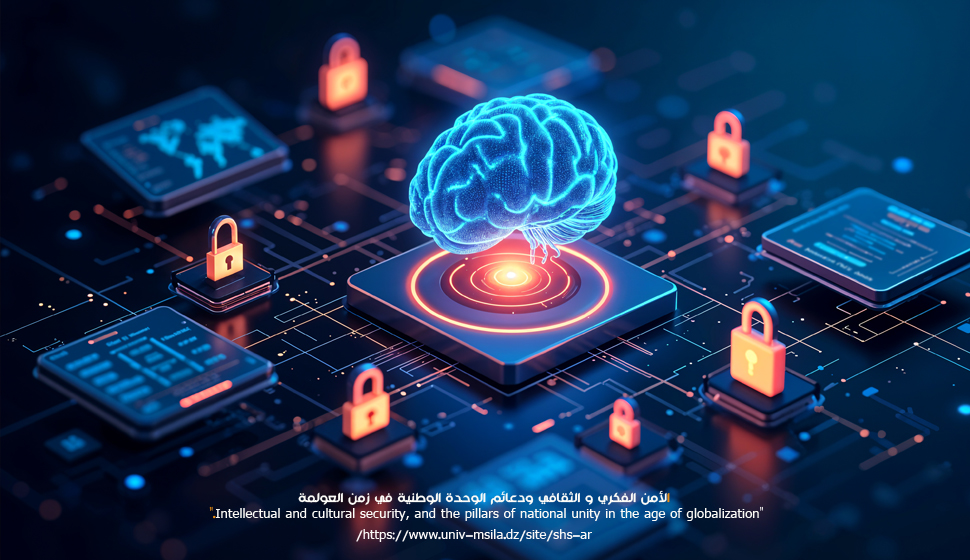
Intellectual and Cultural Security, and the Pillars of National Unity in the Age of Globalization
Most, if not all, nations and societies attach great importance to culture in the formation and construction of society and the pathways of social life. Culture imbues individuals and groups with a sense of belonging, thereby fabricating and shaping an identity that highlights the social, cultural, and economic determinants of that society. Identity, in a physical sense, constitutes the solid nucleus of individual and societal personality. It serves as the guiding compass and controlling regulator for the directions, trajectories, and goals of both the individual and society. Culture also works to preserve the community’s components amidst processes of openness and creativity.
One of the meanings of cultural security is the preservation of national constants and foundations in their cultural and intellectual dimensions from the challenge posed by incoming cultures within the framework of what is called Cultural Globalization. This globalization employs various mechanisms, means, and technological platforms, and possesses the ability to influence Algerian national culture to the extent of causing anxiety and fear of dissolution and assimilation into the culture of the other.
If we look at national intellectual and cultural security under globalization, we find that, in addition to the external challenge imposed by globalization, national culture may be subjected to certain processes of intellectual distortion and disruption. This can occur through intrusive intellectual projects that contradict our national foundations, or through malicious international projects aimed at propagating their cultures, creating social fragmentation, or disrupting our authentic frame of reference, particularly the religious and, more specifically, the jurisprudential (Fiqhi) reference.
Intellectual and cultural security has become the most important branch of activity in the world since the end of World War II, if we take the total expenditure allocated to it as a criterion. In some developed countries, education sometimes holds the first rank in terms of allocated budget. This is to ensure the preparation and cultural and social integration of the individual into society. The tasks entrusted to cultural and intellectual security are becoming broader and more complex every day, to the extent that a mere comparison with its past tasks is not valid because the world is witnessing enormous developments that necessitate the periodic development of educational curricula. Education constitutes a fundamental component in every project.
.
| Book Contents | ... |
|
Book Cover |
.... |

